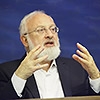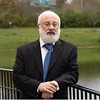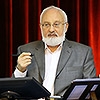Imagine a world where a decentralized virtual network manages every aspect of our lives for us, where all we need to focus on is helping one another be better humans.
Blockchain technology will play a key role in weaving the future society we will all shape together. Yet in order for this new technological stage to work in our favor, we will need to adapt our way of thinking, wrap our head around new concepts, and embrace new values.
The need to reorganize humanity
The various intricate and threatening scenarios taking place around the world today in the form of social polarization, political instability, climate destabilization, mass immigration, technological unemployment and more, are actually the first signs of a new humanity. This is because the birth of something new is always painful and this is what we are experiencing now.
We will need to reorganize human society in a truly comprehensive manner to ensure our interdependence and interconnection are beneficial to our prosperity and are in sync with the natural system. To do this, one thing will have to change along with our technologies – ourselves.
“Cloud nations” will play key role
According to futurist Dr. Roey Tzezana, in the coming decades we will no longer need the territorial institutions we have in our world. Most of the government and civil services will be provided automatically and can be managed remotely via emerging yet highly reliable technologies such as blockchain. Essentially, “cloud nations” will be a virtual way for any group of individuals to unite under a common identity, and set up their own “smart contracts” for managing their relationships.
Unlike the physical countries of today, these new virtual entities will not be limited by territorial restrictions, and members will be able to come and go as they please. Ultimately, cloud nations have the potential to distribute decision-making processes to their citizens, which would gradually render many government institutions obsolete.
With all human behavior being automatically monitored and fed into this vast network, cloud nations will also include decentralized systems of justice. Prompt justice will be available to any citizen at any point in the network, making most of the current functions of courts redundant.
In addition, cloud nations will allow for a cooperative economy that doesn’t concentrate power in the hands of the few, and systems would be in place to calculate the basic needs of every human and print 3D versions of whatever we need.
The unique role of a Jewish Cloud Nation
To take all of this a step further, Tzezana is partnering with Jewish thinkers and researchers, who are developing the “Jewish Cloud Nation” project — a virtual state that will unite Jews from all over the world. They will receive services “in a fully decentralized way with no geographical limitations.”
The core values of the Jewish Cloud Nation are to be determined by a special committee of Jewish sages. This distinguished group of great thinkers and social scientists will meet in person to formulate universal values for Jews everywhere.
The goal is to organize a framework for implementing the Jewish ideal of “Tikkun Olam” — an old-new principle according to which Jews are to facilitate the correction of the world. The project’s website states that “The code of the Jewish Cloud Nation will be open and transparent, and will be shared with everyone to allow for further creation of other cloud nations, to serve the needs of citizens of the entire world without the involvement of dysfunctional governments or corrupted regimes.”
Forging a new concept for society
It’s hopeful to see that how experts who recognize the imminent technological future also envision the emergence of a cooperative society, and are also taking steps to help form such a society. Such a vision corresponds directly with the social teachings that appear in the authentic writings of Kabbalah.
About a century ago, Kabbalist Yehuda Ashlag wrote: “Do not be surprised if I mix together the well-being of a particular collective with the well-being of the whole world, because indeed, we have already come to such a degree that the whole world is considered one collective and one society.”
Indeed, in our time, we are coming closer to the need to forge a new concept for human society. The escalating crises in countless realms of human engagement are pushing us to rethink the foundations of our culture. This is nature’s way of getting us to evolve towards the next degree of human connection, which means a change of thinking and a change of values.
Thus, it should come as no surprise that forward-thinking technological entrepreneurs are among the first to identify this trend. They are also quick to identify the practical tools we can use to create an infrastructure that will enable a new social order at every level: economic, social, political, educational etc.
However, smart contracts are not enough to bring people together. Technology does indeed upgrade our abilities, but it doesn’t upgrade our inner qualities and the way we relate to each other.
Education must come first
In order for a cloud nation to be a model society promoting genuine mutual concern between citizens, it must begin an educational process that would be embraced by its citizens. They would need to learn about the benefits of mutual consideration and build new norms and values for positive social engagement. Ultimately, they need to develop a new way to sense each other, as pieces of a single whole. This is a conscious development that requires people’s willingness to change their perception of life.
For instance, a central aspect of such a change is the issue of privacy. To futurists such as Tzezana, it’s clear that no matter how much we discuss the right for privacy nowadays, in the technological future, the struggle for privacy is a lost battle. In fact, the more individuals are willing to relinquish their privacy, the more beneficial and effective will be the systems they can establish for themselves.
Privacy in cloud nations will have to be reduced to a minimum, but the willingness to give up one’s privacy will not come naturally. This is a sensitive matter that requires great preparation and adoption of new values. Part of the educational process would be to help us willingly exchange our need for privacy for real benefit. This is just one example of the need to enhance human consciousness and nurture human connection.
As we head towards the future society that today’s technologies are weaving before our eyes, we will have to adapt to new values and concepts that may seem utopian. However, this is because most individuals today lack the sensation of being a single part of a whole.
Therefore, our number one concern in crafting our interconnected future should be how to educate ourselves. Rather than letting technology lead the way, we can already take steps towards the change we have to go through — becoming interconnected human beings in a society that promotes unity and rewards mutual concern and consideration.
In the future society, people will sense that if they are not actively contributing to the welfare of the whole, they are indirectly harming others as well as themselves. Then, our advanced technologies will work to everyone’s benefit.















